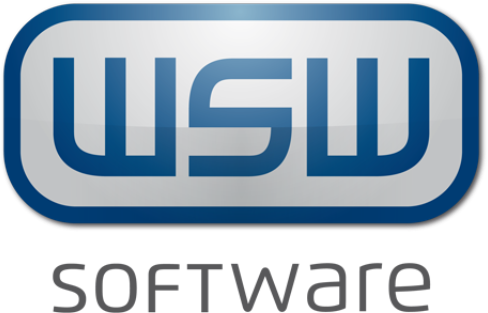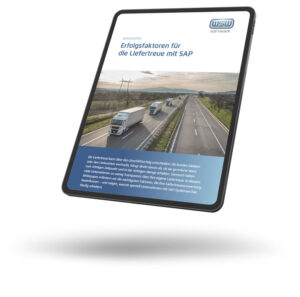VALERIS®
The modern web-based MES for maximum transparency on the shopfloor
Competitive manufacturing requires digital support. With VALERIS, you have a Manufacturing Execution System that meets your requirements for transparency on the store floor.

Seamless traceability, free configuration and intuitive operation
With VALERIS, we have developed a modern, web-based Manufacturing Execution System (MES) which takes all the above aspects into account. It ensures maximum transparency in the Shopfloor and supports process optimization to a high degree.
VALERIS is freely configurable and extremely intuitive to use. All this relieves the IT department and saves valuable IT resources.
How you can benefit from VALERIS
VALERIS is an industry-independent MES for medium-sized series, warehouse, individual or JIS manufacturers and is aimed at companies that want to enhance digitization in their production while remaining flexible.
You want to optimize your production processes
You want to exploit the potential of digitization and Industry 4.0
You need traceability of your products
You need more transparency about your processes
At the same time, you do not have the necessary IT resources
You must remain competitive
Advantages
Configure instead of program
Thanks to the no-code/low-code modeling approach, logical relationships and dependencies of processes are mapped in VALERIS via a graphical editor to predefined actions (e.g. read/write/scan actions, and many more). Business users as well as process engineers can configure process and production parameters themselves easily and quickly without additional IT know-how. This relieves the internal IT department and is easy on the IT budget, because the costs for external IT consultants are also eliminated.
Seamless product and process tracing (traceability)
VALERIS maps all production lines and workstations as a digital twin and reflects the processes on the store floor and the production logic one-to-one. VALERIS ensures seamless Traceability of the manufactured products and the processes.
Intuitive operation through UX (user experience) design
VALERIS has a state-of-the-art user interface in UX design. Users are guided intuitively, efficiently and safely through all process, configuration and administration steps. This also enables a quick familiarization of the employees with the system.
Maximum process reliability and product quality
VALERIS enables the target/actual comparison of process parameters in real time, as well as the digital execution and confirmation of inspection instructions. Defective products can thus be identified and rejected directly on the line. In addition, process interlocking functions automatically intervene in the event of irregularities and, if necessary, lock the production of the product.

Interactive demo
Take a look at VALERIS and let us explain the highlights step by step
View into the software

VALERIS - The modern MES for your production
VALERIS is a modern Manufacturing Execution System (MES) that keeps you competitive: You benefit from maximum transparency on the store floor and high process reliability. Thanks to the no-code/low-code approach, VALERIS is particularly easy to configure and intuitive to use.
More product features
VALERIS acts as a link between field, control and enterprise level. Using interfaces such as OPC-UA, Modbus, MQTT, Rest, EUROMAP 63 or 77, Industry 4.0 and IIoT scenarios can be realized quickly and easily.
With VALERIS, individual dashboards or reports can be created quickly and easily. This way, every employee/decision maker can be provided with exactly the information he needs for his tasks.
In order to achieve the highest possible system flexibility and scalability, VALERIS was deliberately designed as a web-based application. Working is possible via any hardware. A standard notebook, PC or industrial PC, for example, is completely sufficient. Only a browser and internet access are required. This saves costs in the long term (e.g. for acquisition, maintenance, servicing, repairs).
VALERIS can be deployed as a private cloud, public cloud, hybrid or on-premise solution. The modern system architecture enables free scalability and flexibility. No matter which IT strategy is adopted today or tomorrow, VALERIS adapts.
During the development and implementation of your future MES concept and the implementation of VALERIS, we at WSW Software support you with concentrated consulting and process know-how. We guarantee the smooth operation of VALERIS with ITIL-compliant support from Germany, if required also around the clock (24/7), and with flexibly scalable service level agreements. Since all services come from a single source, you receive the best possible support and derive maximum benefit from VALERIS.
Is VALERIS also suitable for my production?
VALERIS is an industry-independent MES for medium-sized series, warehouse, individual or JIS manufacturers and is aimed at companies that want to drive digitization in their production while remaining flexible.
- We have high requirements for complete product traceability.
- We produce in changing production processes.
- We have limited IT resources and budgets.
- We are looking for an expandable system that grows with production.
- We want a cost-effective solution that is quickly implemented.
Do any of the statements apply to your production? Then you should contact us!
VALERIS functional areas
According to the VDI guideline 5600, which describes the tasks of a Manufacturing Execution System (MES), VALERIS covers the following functional areas:
Material (Traceability/WIP)
Operating equipment/resource (MDE/tool)
Order (BDE)
Information (performance/key figures)
Additionally we offer:
Master planning (control and planning functions for the master)
Worker qualification
VALERIS Modules
Versatile connections via OPC-UA
The modules from the digitalization area enable automatic data acquisition by connecting the machines, assembly systems, measurement technology and sensors. The VALERIS machine coupling is based on OPC-UA and thus implements most desired connections such as S5/S7, E63/77, UMATI or Modbus.
Machine states, running times, status messages or weights, pressures, temperatures can be recorded, configured and documented via VALERIS. In the process, the data modules also "talk" to each other, e.g. if subsequent operations have to be interlocked with certain criteria or if the worker is to confirm quality-relevant steps. The graphically supported configuration of the process logic saves effort and reduces errors in the process.
If necessary, you can change the machine connections independently.
What does a modern ME solution actually have to bring to the table?
Our answer: "Configuring instead of programming".
Thanks to the no-code/low-code modeling approach, business users or process engineers can easily and quickly configure machine interfaces as well as process and production parameters themselves, without additional IT know-how. VALERIS has a state-of-the-art user interface in UX design. Users are guided intuitively, efficiently and safely through all configuration steps.
Of course, if required, we support you with our services such as training, consulting or even installation and configuration. Your decision!
Are these questions part of your daily work? The module VALERIS Information supports you to answer them:
- The data collected from the production process is clearly visualized in a dashboard and can be condensed into focus analyses.
- You can compare current as well as historical data of equipment, operations, and production areas, such as a critical machine, a particular item, or specific metrics.
- You can independently set your favorites, which you must have in view immediately.
VALERIS Material Management digitalizes your production process to the highest degree and records the process parameters in real time. Plants, measuring devices, scanners, label printers or IT systems are connected bidirectionally. Your processes are automated. If necessary, defective components are automatically rejected.
Whether serial number, batch or assembly ... you record the components that went into the manufacturing process online. Traceability of products and processes is guaranteed. And at the push of a button!
If these are the questions you need answers to, then the VALERIS Resources module is the right choice. The module looks at all resources that are required for production. You decide whether you want to keep an eye on machines, plants or assembly workstations or whether tools and resources should additionally be monitored and optimized.
The module provides you with an overview of the availability, operating time, condition and problems of the resources. This gives you the basis for increasing the availability of the production resources used and getting more out of the capital invested.
VALERIS Order is your "sensor" in production. Hereby you reduce the feedback effort and automate the data flow between production and ERP - the basis for the optimization of production and order throughput.
As classic PDC functions, orders/work processes are logged on to the worker dialogs, the production times are recorded and compared with the target or planned times. This clearly shows when deadlines get out of hand or which problems arise.
And if you have to react quickly, the VALERIS module Master Planning helps you to reschedule. Via drag & drop you assign workstations and use your expertise to decide what belongs together and should follow each other. VALERIS supports you with filter functions and temporary evaluations (e.g. setup time totals) to make quick, well-founded decisions.
Worker qualification shows you at the push of a button who has been trained on a system, when they last worked on it and when their knowledge needs to be renewed. Differentiation down to the product level is possible.
With the supplementary Worker Control module, you can define what a worker can/should see in an input dialog (image, area, video, inspection screen, etc.) and what he can/should confirm. With worker control, you prevent unqualified personnel from operating the system, which could result in incorrect work steps being performed and/or errors being triggered.
The benefits? Both modules serve to reduce committees and provide important proof of capability for ISO audits and product liability issues.
An excerpt of our customers















Frequently asked questions about Manufacturing Execution Systems (MES)
A Manufacturing Execution System (MES) directly supports the user in monitoring, controlling and documenting production processes. In addition, it acts as a link to provide suitably prepared production data from the shopfloor to the enterprise resource planning systems (ERP) in real time or in real time.
The core functions of an MES include components for machine data acquisition (MDE) and production data acquisition (PDA) as well as the ability to seamlessly trace and document the manufacture of the product (material/traceability).
In addition, an MES offers the possibility to support quality-assuring processes in the creation process. From the control of workers via guided data entry dialogs to the documentation of skills and instructions for or on specific machines/equipment/workplaces.
A suitable reporting module enables the user to visualize key production figures - adapted to his needs - and thus to make his production transparent.
The basis, however, is the digital connection of workstations, consisting of machine coupling and worker dialogs. Information from the production process flows into the MES via these. A very up-to-date view of plants, products or production areas is thus possible.
The advantages of an MES lie in improved plant and machine productivity. This can be accompanied by a reduction in throughput times in production.
In addition, product quality is increased and adherence to delivery dates and customer satisfaction are improved.
Transparency increases and the reaction speed to changing conditions due to shutdowns/failures is increased.
MES is also a component of the documentation of the manufacturing process including the involved resources (human, machine, material, method) in the context of product liability.
VALERIS is a modern, lean, robust software solution designed by usability experts with a focus on the user.
Whether machine operator, production engineer or plant manager, every user is optimally supported by the front end. The digital mapping of processes, the creation of interactive dashboards and customer-oriented reports can be carried out independently by the user.
Of course, the core requirements of an MES according to VDI 5600 such as management of order (BDE), equipment (MDE, tool), material (traceability, WIP storage) and machine coupling are fulfilled. Process interlocking, complete traceability and transparency of the production process are also guaranteed.
A generalization is not possible, but existing machine connections can almost always be reused. If the IT hardware used for the reporting terminals is approximately state of the art, it can often be reused.
At the application and database level, a switch should be made to modern systems. Cloud systems (internal and external) are secure and reduce IT costs sustainably.
The transfer of data for the documentation of processes can take place, but is associated with effort. A case-by-case consideration taking into account data backup concepts of the existing system is required.
The key lies in the "intelligent factory" (Smart Factory), which operates according to the principles of Industry 4.0 and in which all systems, processes as well as data are networked end-to-end and control themselves.
The central building block for this smart factory is the use of a modern MES that maps all production lines and workstations and communicates bidirectionally with the manufacturing systems via OPC-UA and other interfaces.
This makes it possible to network data and processes horizontally on the shopfloor and make production completely transparent. This is an important prerequisite for further process optimization, seamless tracking and tracing, and Industry 4.0 scenarios. If the ME solution can be connected via interfaces to an existing ERP system or a JIS and logistics platform, this is another big step towards data migration.

Director Business Unit SAP & Digital Supply Chain
T: +49 89 895089 426
M: wolfgang.salinger@wsw.de



















